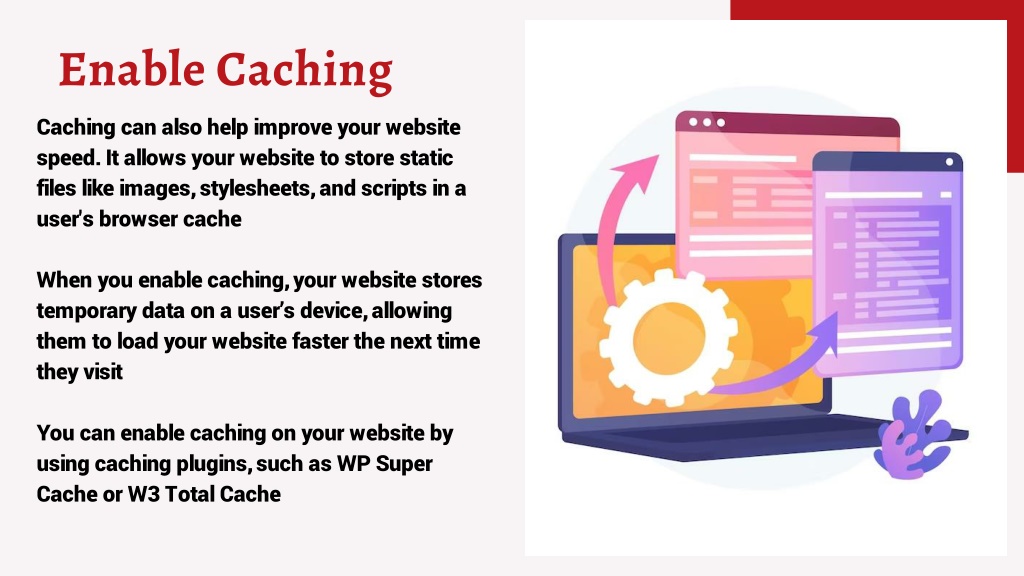
Browser caching is a technique where static files (like images, CSS, JavaScript) are stored in the user’s browser so they don’t need to be downloaded again on future visits.
When caching is enabled, the browser remembers previously loaded resources, making your site load much faster the next time a user visits.
Benefits of Enabling Browser Caching

- Faster Load Times
- Cached content loads instantly, speeding up page performance for returning users.
- Reduced Server Requests
- Fewer file requests to your server = less bandwidth usage and faster response times.
- Better User Experience
- Users love fast websites. Caching makes navigation feel smooth and seamless.
- Improved SEO
- Google favors faster-loading sites, so caching can help boost your search engine rankings.
- Lower Bounce Rates
- When your site loads quickly, users are less likely to leave — especially important for mobile users.
Why Use Browser Caching
Browser caching helps your website load faster by storing parts of your site (like images, stylesheets, and scripts) directly in a visitor’s browser. Instead of downloading these files every time someone visits or navigates your site, the browser loads them locally from the cache.
This means:
- Quicker page loads for repeat visitors
- Less demand on your server and bandwidth
- Smoother user experience, especially on slower connections
Overall, using browser caching improves site speed, reduces server load, and enhances user satisfaction — making it a simple but effective way to boost website performance.
